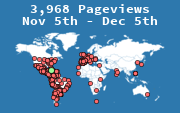Effectiveness of quinine in the treatment of malaria
Keywords:
delay of the response, Plasmodium falciparum, quinineAbstract
Introduction:
Malaria is an acute fibril disease, sometimes lethal, caused by parasites that are transmitted to the human being by mosquitos of the genre Anopheles. Of the 229 million cases of malaria registered in 2019, most of them were originated in children younger than five years old in sub-Saharan Africa. Mortality is given by the presence of complications which should be early identified and treated.
Objective:
To determine the response to the treatment with combinations of quinine and the possible factors which can influence.
Methods:
A descriptive study was carried out with 59 adult patients with malaria by Plasmodium falciparum admitted to the Department of Medicine at Pedro Kouri Institute of Tropical Medicine, during the period from January, 2015 to December, 2018. The information was taken from the patients ‘charts and processed in a data base in Microsoft Excel, later they were analyzed in the Programme \IBM\SPSS\Statistics\21.
Results:
Male patients prevailed with a mean of 37.9 years old. The response to treatment was adequate with schemes combined and used with quinine. The 20.3 % of patients had a delayed response and it was related to a severe and atypical clinical picture, hyperparasitemia, it delays on admission, it has presence of presence de anemia and the use associate to clindamycin.
Conclusions:
Combinations bases on quinine were effective for the treatment of malaria by Plasmodium falciparum, although the efficiency of the treatment can be influenced by other factors.
Downloads
References
Organización Mundial de la Salud[Internet]. Ginebra: OMS; ©2022- 2023[ actualizado 6 Abr 2020; citado 14 Jul 2022]. Paludismo. Disponible en: https://www.who.int/es/news-room/fact-sheets/detail/malaria
Organización Mundial de la Salud, Organización Panamericana de la Salud. Informe para la certificación y registro de la erradicación de la Malaria en Cuba. Documento oficial. Washington, DC: OMS-OPS; 1972.
Hernández-Redondo S, Chuprine-Sisfontes K, Carrillo-Chávez A. Actualización de malaria. Rev Med Sinerg [Internet]. 2020. [ citado 4 Ene 2023); 5(12):e616. Disponible en: https://revistamedicasinergia.com/index.php/rms/article/view/616
Organización Mundial de la Salud[Internet]. Ginebra: OMS; ©2022- 2019[ citado 14 Jul 2022]. Resistencia a los antimaláricos. Disponible en: https://www3.paho.org/hq/index.php?option=com_content&view=article&id=2405:resistance-antimalarials&Itemid=0&lang=es#gsc.tab=0
Organización Mundial de la Salud[Internet]. Ginebra: OMS; ©2016- 2023 [citado 16 Mar 2023]. Eficacia y resistencias farmacológicas. Programa mundial sobre Malaria. Disponible en https://www.who.int/es/teams/global-malaria-programme/case-management/drug-efficacy-and-resistance
Organización Mundial de la Salud[Internet]. Ginebra: OMS; ©2018- 2023[ actualizado 26 Ene 2018; citado 16 Mar 2023]. Tratamiento del paludismo: panorama general. Disponible en: http://www.unsis.edu.mx/ciiissp/enfermedades/enfermedades%20transmisibles/malaria/Pob_gral/5-Tratamiento/Tratamiento%20del%20Paludismo_%20Panorama%20General.pdf
Menendez-Capote R. Tratamiento supresivo del paludismo en áreas endémicas. Revista Cubana de Higiene y Epidemiología [Internet]. 2019 [citado 16 Mar 2023];
(3):[aprox. 17 p.]. Disponible en: https://revepidemiologia.sld.cu/index.php/hie/article/view/121
Agud-Fernández M. Resistencia a artemisina. MPJ Journal[Internet]. 2019 [citado 6 Ene 2023];2 (45): [aprox. 1 p]. Disponible en: https://mpgjournal.mpg.es/index.php/journal/article/view/277/523
WWARN K13 Genotype-Phenotype Study Group. Association of mutations in the Plasmodium falciparum Kelch13 gene (Pf3D7_1343700) with parasite clearance rates after artemisinin-based treatments—a WWARN individual patient data meta-analysis. BMC Medicine[Internet].2019[citado 16 Mar 2023]; 17(1):1-21. Disponible en: https://bmcmedicine.biomedcentral.com/articles/10.1186/s12916-018-1207-3
Lubell Y, Dondorp A, Guerin PJ, Drake T, Meek S, Ashley E. et al. Artemisinin resistance – modelling the potential human and economic costs. Malaria Journal [Internet].2014[citado 16 Mar 2023];13:452. Disponible en: https://malariajournal.biomedcentral.com/articles/10.1186/1475-2875-13-452
Fernández-Martínez B, Gómez-Barroso D, Díaz-García O y Cano- Portero R. Situación del paludismo en España. Evolución del tipo de notificación a la Red Nacional de Vigilancia Epidemiológica y resumen de los resultados de la vigilancia de 2014 a 2017. Boletín Epidemiológico Semanal [Internet].2018. [citado 16 Mar 2023];26(7): 48-9. Disponible en: https://revista.isciii.es/index.php/bes/article/view/1073
Organización Mundial de la Salud[Internet]. Ginebra: OMS; ©2023[citado 16 Mar 2023]. Programa Mundial sobre Malaria. Tratamiento. Disponible en: https://www.who.int/es/teams/global-malaria-programme/case-management/treatment
García-Gómez A, Pradere-Pensado J, Sanabria-Blanco O, Luejes-García T, Hernández-Torres A. Caracterización de pacientes con paludismo grave por Plasmodium falciparum en una unidad de cuidados intensivos. Revista Cubana de Medicina Militar [Internet]. 2017 [citado 16 Mar 2023]; 46 (3): [aprox. 10 p.]. Disponible en: https://revmedmilitar.sld.cu/index.php/mil/article/view/49
Sandoval de Mora M. Manejo clínico-terapéutico de la malaria grave. Bol Venez Infectol[Internet].2022[citado 16 Mar 2023];33(1):24-9. Disponible en: https://docs.bvsalud.org/biblioref/2022/08/1381960/03-sandoval-m-24-29-2022.pdf
Adam I, Ibrahim Y, Gasim GI. Efficacy and safety of artemisinin based combination therapy for uncomplicated Plasmodium falciparum malaria in Sudan: a systematic review and meta analysis. Malaria Journal [Internet]. 2018 [citado 16 Mar 2023];17(110): [aprox. 10 p.]. Disponible en: https://malariajournal.biomedcentral.com/articles/10.1186/s12936-018-2265-x
Rolling T, Wichmann D, Schmiedel S, Burchard GD, Kluge S and Cramer JP. Artesunate versus quinine in the treatment of severe imported malaria: comparative analysis of adverse events focussing on delayed haemolysis. Malaria Journal[Internet]. 2013 [citado 16 Mar 2023];12(241): [aprox. 16 p.]. Disponible en: https://malariajournal.biomedcentral.com/articles/10.1186/1475-2875-12-241
Rabaneda-Gutierrez L, Alcala-Minagirre PJ, Sanchez-Bautista A. Anemia hemolítica tardua en niños tratados con artesunato intravenoso por malaria grave. Enfermedades Infecciosas y Microbiología Clínica[Internet].2020[citado 16 Mar 2023]; 38(3):139-40. Disponible en: https://www.elsevier.es/es-revista-enfermedades-infecciosas-microbiologia-clinica-28-pdf-S0213005X1930196X
Varo R, Chaccour C, Bassat Q. Update on malaria. Med Clin (Barc). Nov 13 [Internet].2020[citado 16 Mar 2023]; 155(9):395-402. Disponible en: https://www.elsevier.es/es-revista-medicina-clinica-2-linkresolver-update-on-malaria-S0025775320303262
Rubio Esparza E. El tratamiento de la malaria [Internet].Madrid:Facultad de Farmacia Universidad Complutense; 2017.[citado 16 Mar 2023].Disponible en: http://147.96.70.122/Web/TFG/TFG/Memoria/ELVIRA%20RUBIO%20ESPARZA.pdf
Downloads
Published
How to Cite
Issue
Section
License
Copyright (c) 2023 Reinaldo Luis Menendez Capote, Olga Pomier Suarez

This work is licensed under a Creative Commons Attribution 4.0 International License.















 This site is licensed under a
This site is licensed under a